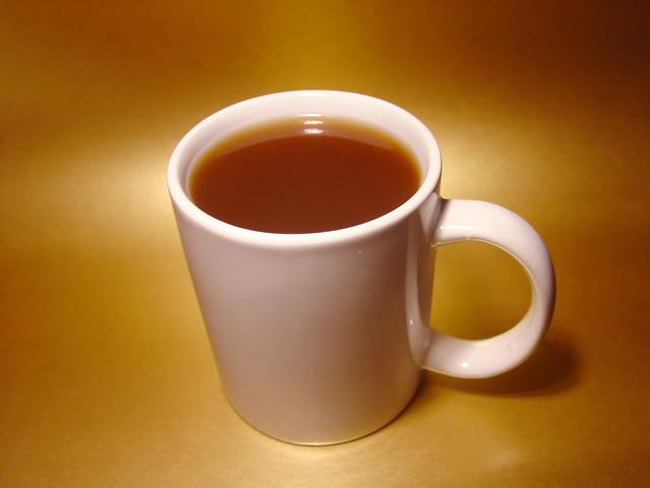Caffeine Might Cut Post-Workout Pain

Get the world’s most fascinating discoveries delivered straight to your inbox.
You are now subscribed
Your newsletter sign-up was successful
Want to add more newsletters?

Delivered Daily
Daily Newsletter
Sign up for the latest discoveries, groundbreaking research and fascinating breakthroughs that impact you and the wider world direct to your inbox.

Once a week
Life's Little Mysteries
Feed your curiosity with an exclusive mystery every week, solved with science and delivered direct to your inbox before it's seen anywhere else.

Once a week
How It Works
Sign up to our free science & technology newsletter for your weekly fix of fascinating articles, quick quizzes, amazing images, and more

Delivered daily
Space.com Newsletter
Breaking space news, the latest updates on rocket launches, skywatching events and more!

Once a month
Watch This Space
Sign up to our monthly entertainment newsletter to keep up with all our coverage of the latest sci-fi and space movies, tv shows, games and books.

Once a week
Night Sky This Week
Discover this week's must-see night sky events, moon phases, and stunning astrophotos. Sign up for our skywatching newsletter and explore the universe with us!
Join the club
Get full access to premium articles, exclusive features and a growing list of member rewards.
Forgo the after-workout massage for a cup o' Joe? Moderate doses of caffeine—the equivalent of two cups of coffee—can cut post-gym muscle pain, suggests a new but small study.
The findings have particular relevance for people new to exercise, since they tend to experience the most soreness.
“If you can use caffeine to reduce the pain, it may make it easier to transition from that first week into a much longer exercise program,” said lead researcher Victor Maridakis of the University of Georgia.
The results
Maridakis and his colleagues studied nine female college students who were not regular caffeine coffee drinkers and didn’t exercise on a regular basis. One and two days after an exercise session that caused moderate muscle soreness, the participants took either caffeine or a placebo. Then, they completed two thigh exercises, one requiring maximum muscle effort, and the other sub-maximal effort.
Those who consumed caffeine one-hour before the maximum force test had a 48 percent reduction in pain compared to the placebo group. Students who took caffeine before the near-maximum force test showed a 26 percent reduction in soreness.
Anyone who has needed a pick-me-up knows caffeine can increase alertness. Past studies have shown it also boosts endurance, and one experiment found caffeine reduces pain during moderate-intensity cycling.
Get the world’s most fascinating discoveries delivered straight to your inbox.
The researchers suggest the caffeine likely works by blocking the body’s receptors for adenosine, a chemical released in response to inflammation.
Caveats
You might not want to rush and pack a thermos of coffee in your gym bag, however. For one, for some people too much caffeine can cause jitteriness, heart palpitations and sleep disturbances. Also, the results might not apply to regular caffeine users, who might be less sensitive to caffeine’s effects. Plus, the researchers only studied women, and men could respond differently. To verify the results for the general population, the study will need to be replicated with more participants and also with men.
Still, the scientists said caffeine appears to give more relief than found with conventional pain and soreness relievers, such as naproxen (the active ingredient in Aleve), aspirin and ibuprofen.
“A lot of times what people use for muscle pain is aspirin or ibuprofen, but caffeine seems to work better than those drugs, at least among women whose daily caffeine consumption is low,” said Patrick O'Connor, also of the University of Georgia.
The research will be detailed in the February issue of The Journal of Pain.
- Caffeine May Boost Female Sex Drive
- Top 10 Bad Things That Are Good For You
- Caffeine-Stoked Energy Drinks Worry Doctors
- Wake Up! Decaf Coffee Has Caffeine
- The Chemistry of Great Coffee
Jeanna Bryner is managing editor of Scientific American. Previously she was editor in chief of Live Science and, prior to that, an editor at Scholastic's Science World magazine. Bryner has an English degree from Salisbury University, a master's degree in biogeochemistry and environmental sciences from the University of Maryland and a graduate science journalism degree from New York University. She has worked as a biologist in Florida, where she monitored wetlands and did field surveys for endangered species, including the gorgeous Florida Scrub Jay. She also received an ocean sciences journalism fellowship from the Woods Hole Oceanographic Institution. She is a firm believer that science is for everyone and that just about everything can be viewed through the lens of science.
 Live Science Plus
Live Science Plus










